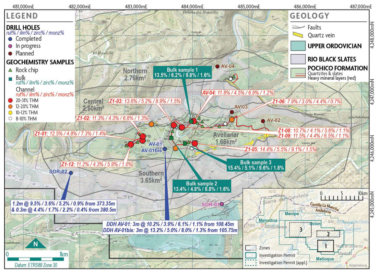The Australian nickel industry faces significant challenges, and Monash University experts say balancing mine closure risks and investing in recycling technology are crucial for long-term gain.
Professor David Whittle, Faculty of Engineering
Contact details: +61 417 560 466 or [email protected]
The following quotes can be attributed to Professor Whittle:
Pausing operations versus permanent mine closure
“With a transition to net zero, the International Energy Agency is predicting significant increases in demand for nickel. Companies that opt to permanently close mines risk being cut off from the Australian nickel industry at a crucial time.
“In some cases mines have been closed down, when placing them under care and maintenance might have been more strategic. Take San Manuel Copper as an example – one of the USA’s largest copper mines. It was permanently closed by BHP in 2003, when the copper price was around USD0.72/lb. It is likely at the time that the company was forecasting ‘real declining’ prices, but the market dynamics were changing. By May 2006, the price was up to USD3.72/lb, but it was too late for the mine. It is not hard to imagine that if San Manuel had been put into care and maintenance instead of permanently closed, it may have restarted and made a great deal of money for BHP.”
Dr Parama Banerjee, Chemical and Biological Engineering
Contact details: +61 424 348 616 or [email protected]
Dr Parama Banerjee’s research laboratory has developed new methods to extract nickel from old batteries using novel deep eutectic solvents.
The following quotes can be attributed to Dr Banerjee:
Recycling technologies needed to meet demand
“Monash has developed technology that promises to significantly reduce the cost of extracting nickel from recycled batteries. The same technology may lead to significant improvements in the competitiveness of Australia’s nickel mines.
“With rapidly growing demand in most critical minerals markets, there isn’t enough recyclable stock to contribute significantly to overall supply. That will change, and we may see recycling contribute up to 30 per cent of overall supply by around 2040 in many markets.
“Novel deep eutectic solvents can be customised to extract minerals in a highly selective manner. They are relatively inexpensive, have low environmental impacts, and can potentially be reused over and over.
“There is potential for the technology to be adapted for use in extracting nickel from nickel ores, and this could be a game changer for Australian nickel miners, who currently use expensive and energy intensive methods to extract nickel.”
For more Monash media stories visit our news and events site: monash.edu/news
For any other topics on which you may be seeking expert comment, contact the Monash University Media Unit on +61 3 9903 4840 or [email protected]

